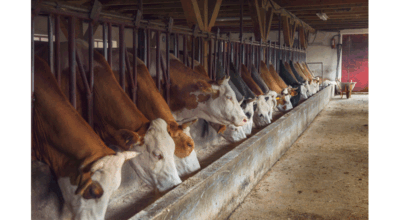Selecting good stock key to success
Published 10:27 am Wednesday, June 12, 2013
by Neil Clark
Southampton County Extension Agent
Many folk in today’s grocery mega-store world may not realize it but judging skills are as essential to winning a local livestock show as they are to building a profitable beef herd. It is a puzzling “art” to many, but there is great economical importance in evaluating breeding stock. For these will be the genetics upon which you will build your herd. Long before Gregor Mendel grew his pea plants and formulated his Laws of Inheritance, humans knew that selecting better animals for breeding produced better herds. In fact, evaluating animals is recorded in the earliest books of the Bible (i.e., a lamb without defect).
In August, there will be a showdown. Dozens of young 4-Hers will go head-to-head, head-to-tail, flank-to-flank in an all out contest of showmanship to bring out the best traits of the animals that they have worked so hard to develop in stature and personality for the past several months. This is the life of a 4-H livestock exhibitor. Months of preparation go in to learning about market animals; all of their parts and terminology, care and conditioning. Then when all of the work is done in the fields and in the barn, you have to saunter back to the office to update and analyze your records in order to find out ways to increase the profitability of the business.
Responsibility, economics, entrepreneurship, communication, and confidence are some of the many life-skills that are developed in participating in 4-H livestock projects. These skills will become all the more important as these 9- to 19-year-old 4-Hers head out into the real world. Whether or not they pursue careers in animal agriculture or some other business, these lessons and skills are transferable. Opening yourself up in a safe and constructive environment for criticism is the way towards improvement and growth. That is what 4-H is all about; making the best better by improving life skills in our youth that go beyond merely academics, or speed, or strength. Critical social and business skills that are rarely found in any textbooks or on the internet, that are only learned from trusted mentors and the school of hard knocks.
Some of the reality that sets in is when these animals get processed for meat. This becomes one of a young farmer’s first awakenings, is that these animals are not being raised for pets. They are being raised in order to provide an important food source demanded by the market. This is becoming especially difficult to grasp in a society becoming farther removed from our agrarian roots. This helps these young people gain perspective of the everyday reality of hardworking farmers who grow our food that most of us don’t appreciate fully when we pop a plastic-covered frozen dinner into the microwave or pull up to the drive-thru window at the nearest fast food place. One hundred and fifty-four out of 155 of us take for granted the ability to eat three meals each day without ever planting the seed, cutting the hay, tending the herd, paying the bills, abiding by the ever-increasing regulations; all day, everyday.
But though rigor is needed for good preparation, we don’t throw these young people headlong into the stresses and strains of agribusiness. Kids won’t get involved or stay involved without a certain amount of fun. And we strive to enhance the fun component in these projects. Being able to work with and groom the animals, hang out with friends, and get pointers and pats-on-the-back from respected leaders are all enticing benefits of these projects. Not to mention the prospects of some premium money at the culmination of these projects. And towards this end we extend gratitude towards the many area businesses and organizations that help support 4-H and these young people. If you are interested in supporting these livestock programs please feel free to contact our office at the number below.
This year poultry, rabbits, goats, and heifers will be exhibited. Our region faces certain constraints to markets and land is utilized in different ways than other parts of Virginia. So we know that many children won’t be able to house many large animal species. Goats, poultry, and rabbits help to open up this world of learning to many more youth who may not have access to large pastures. Contact the Southampton Extension office at 653-2572 if you have youth who wish to exhibit livestock at the Franklin/Southampton County Fair on August 14-17. The registration deadline for exhibiting livestock is June 14. Contest rules are available upon request.
NEIL CLARK is a Virginia Agriculture Extension Agent, serving as Southeast District Forestry and Southampton Interim. He can be reached at southeast@vt.edu.





